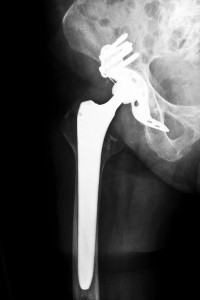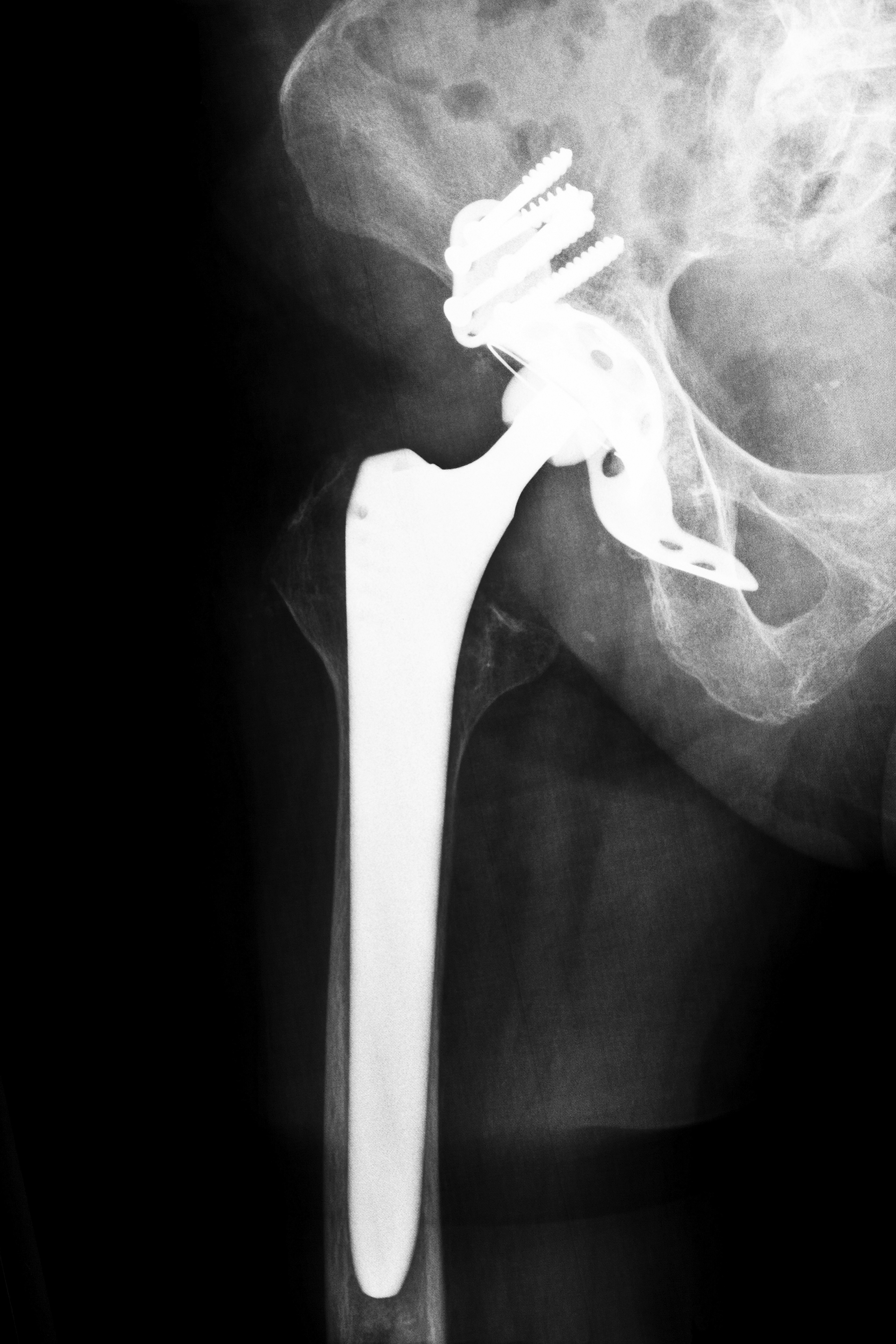 According to statistics, more than 332,000 hip replacement surgeries are performed in the U.S. every year. During these procedures, a surgeon removes a patient’s damaged or injured him joint and replaces it with an artificial hip implant in an effort to increase mobility, improve the function of the patient’s joint and relieve pain that the patient may be feeling. Recovery time is typically no more than three to five days in a medical facility, but some patients may require three to six months to heal depending on their overall health, the outcome of the rehabilitation sessions and the type of hip implant surgery.
According to statistics, more than 332,000 hip replacement surgeries are performed in the U.S. every year. During these procedures, a surgeon removes a patient’s damaged or injured him joint and replaces it with an artificial hip implant in an effort to increase mobility, improve the function of the patient’s joint and relieve pain that the patient may be feeling. Recovery time is typically no more than three to five days in a medical facility, but some patients may require three to six months to heal depending on their overall health, the outcome of the rehabilitation sessions and the type of hip implant surgery.
Although all types of people from a variety of backgrounds may need a hip replacement devices, those who have difficulty performing day-to-day tasks and those who may be constantly suffering from pain or swelling may be candidates for a hip procedure. The most common cause of damage to the hip joint is osteoarthritis, but an individual may wish to consider this surgery if he or she is experiencing bone tumors, osteonecrosis and rheumatoid arthritis or if he or she sustained an injury or fracture to the area.
Hip replacement procedures can also help individuals who cannot find relief from pain medications or NSAIDs or those who are experiencing hip pain when resting or when walking or bending. Patients may complain of joint stiffness that prevents them from being able to move or life their legs and wish to receive a hip implant device, and those who have not yet seen an improvement after trying physical therapy, mobility aids and other assisted devices may benefit from a hip replacement surgery.
While many people have reported success after receiving a hip implant device, it is important to know that not all patients are candidates for every type of hip implant device. Depending on the patient’s age, activity level, overall health and condition of the hip joint, a physician may recommend a ceramic-on-metal, ceramic-on-ceramic, metal-on-metal or metal and plastic implant. Additionally, if you or someone you love is considering a hip implant, consider researching the cost of the device prior to agreeing to a procedure. Although the true cost of hip implant surgeries is not yet known, a study conducted by the Journal of the American Medical Association found that the price can range between $11,000 and $125,000.
According to the American Academy of Orthopedic Surgeons, fewer than two percent of hip replacement patients report severe complications such as infection at the hip joint. The complication rate, as a whole, is relatively low when compared to other types of surgeries, but the most commonly reported side effect is blood clot formation in the leg veins or pelvis. Additionally, patients may suffer from other complications such as:
- Bleeding
- Dislocation
- Early hip implant failure
- Residual pain or stiffness
- Nerve or blood vessel injury
- Fractures
As a result of potential side effects and complications, many patients across the country have allegedly suffered symptoms of early hip implant failure. In several cases, these individuals allegedly required painful and often costly revision procedures to remove and replace the failing device. Stryker Orthopedics and DePuy Orthopaedics are two manufacturers currently facing lawsuits filed on behalf of plaintiffs in Louisiana and across the U.S. According to court documents, the companies have begun to reach settlements to resolve thousands of claims.
Are You Suffering from a Hip Implant Failure in Louisiana?
Have you or someone you love in Louisiana received a hip implant and you believe that you are suffering from early hip implant failure? Contact Attorney Group for Louisiana to learn more about your legal rights and whether you are eligible to seek damages for your injuries. We can provide you with a consultation at no cost to you and connect you with an affiliated hip implant failure attorney in Louisiana who can file your lawsuit and work to help you seek the compensation to which you may be entitled.






